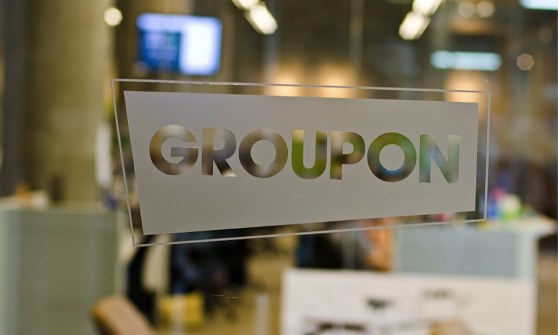
Disclaimer: Rocky Agrawal holds a variety of short positions in Groupon. You can find a full list of his disclosures here and in his author bio.
After an accounting restatement, a shuffling of its board of directors and Groupon’s stock falling to below 50 percent of its initial public offering price (and 66 percent off the high it reached on its first day of trading), Groupon CEO Andrew Mason wrote a letter to shareholders yesterday to try to swing the momentum back in the company’s favor. Although the stock jumped briefly, it dropped a little today.
Mason uses phrases like “reinvent the multi-trillion-dollar local commerce ecosystem” to paint a rosy picture of Groupon’s future. He’s wrong. The company faces a long, tough road ahead. Here is my analysis of Mason’s comments:
Mason claims that “Groupon is a marketing tool that connects consumers and merchants.” Actually, Groupon’s daily deals business tries to keep consumers from building relationships with merchants. Groupon (like other deal companies) does not provide consumer information to merchants. It’s in Groupon’s best interests to have merchants buy another Groupon rather than reach out to consumers directly through a free mechanism like email or Twitter.
Personalization. Mason cites deal personalization and targeting as something Groupon is doing right. I still get emails for laser hair removal and hair straightening on a regular basis. The fact is that Groupon does not have enough data to do targeting. Companies like Google, Facebook, Twitter, and American Express have substantially more data on users than Groupon does. I’m one of Groupon’s best customers (having purchased at least 20 Groupons), but that data is trivial compared to what Google has on me. The typical Groupon customer has only purchased one Groupon.
Mobile. Mason refers to mobile adoption as an important potential success for Groupon. Here, I partly agree with him. Local commerce will be driven by mobile. But it also gets at one of the biggest flaws I see in Groupon’s path to date: The company spent hundred of millions of dollars on the wrong land grab. It built a giant, very expensive email list; that money should have been spent getting app installs. Now it’s having to spend money again to get the app installs.
Groupon Now. Mason touts Groupon Now, but the numbers in his own letter disprove its success. Groupon Now has sold 1.5 million Groupons compared with 170 million overall in 2011, according to the letter. That is less than 1%. On a revenue basis, I would expect it to be even smaller because Groupon Now deals are frequently for restaurants, which have lower tickets. LivingSocial, which pioneered the real-time deals product that Groupon copied for Groupon Now, recently shut down its product to focus on better opportunities. There are many structural reasons why Groupon Now will not be a success in the near term. I’ll write about those in a future post.
Groupon Rewards. It’s too soon to say how Groupon Rewards will perform. But it is an incredibly crowded space, with companies like Facebook, Foursquare, American Express, and Google all having their own offerings. (There are at least a dozen more.) Regardless, Rewards will have much smaller take rates than the daily deals business.
Groupon Scheduler. It’s a competent, but not excellent product. (See my detailed review.) Getting merchants to adopt this service will be a challenge. Groupon will be competing with vertical players like OpenTable and MindBody that can provide a product that is much better suited to the needs of each type of merchant. Nearly two months after I called Groupon out on it, the company still hasn’t answered the question of who owns the data that merchants put into the system. If a merchant inputs all of its contacts and appointments, can Groupon use that data to sell competing services? Until Groupon answers that very basic question, I advise all merchants to stay away from this product. Yield management is a smart business strategy that small businesses should take advantage of; Groupon has yet to make a credible case that it is a trustworthy partner.
Groupon seems to be chasing everything that moves without thinking things through. This isn’t surprising given that the company shot up to 11,000 employees (more than three times the number of people Facebook employs) without ever proving its original business model. It needs to focus on 3 or 4 products that it thinks will work, instead of trying everything and hoping it sticks.
Its core business model is in trouble and the other opportunities it’s going after are hard businesses with lots of competitors. From Mason’s letter:
Though our transformation from daily deal provider to local commerce platform will not happen overnight, in the coming quarters, we will release the products that we believe complete the foundation for our ecosystem. We look forward to sharing them soon.
Local has always been an incredibly difficult problem. It doesn’t spin out overnight successes. The companies that have succeeded are relatively small. OpenTable is valued at $823 million. Constant Contact is valued at $679 million. Although the optics of the daily deals business and Groupon’s questionable accounting made it look like a huge success, Groupon will find that the new business lines it is trying to get into take a long time and are highly competitive.
I stand by my estimate from last August when I told Emily Chang on Bloomberg West that Groupon is a $1-$2 billion company.
Mason does have one ace in the hole: Given the company’s ownership structure, he doesn’t really have to care about what Wall Street thinks. He could choose to ignore the stock price and do the right things for the business. That might give the company a fighting chance.
Photo credit: Swanksalot/Flickr

